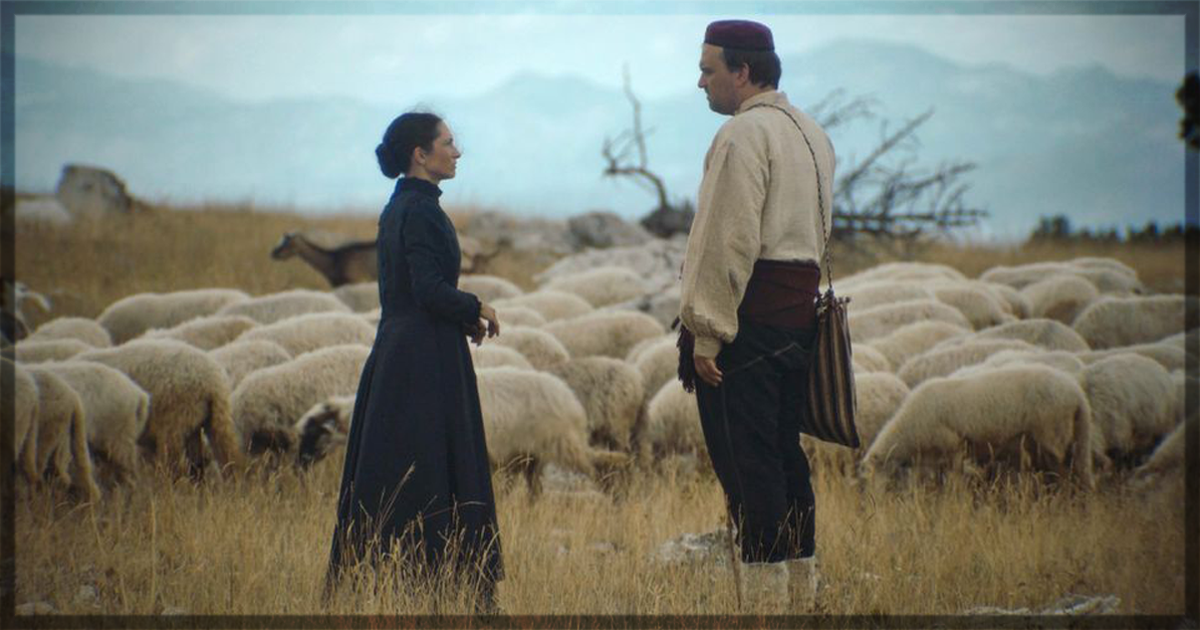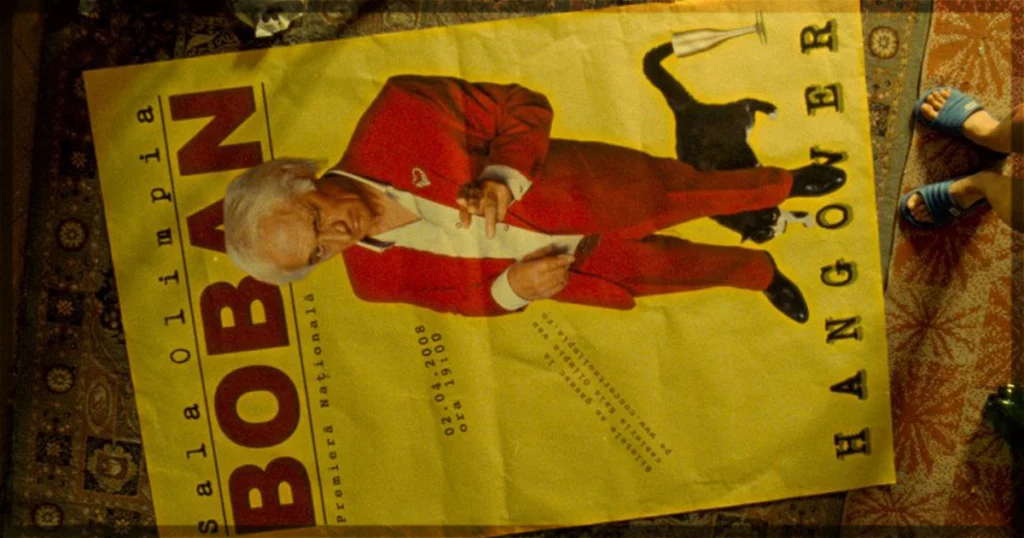In the following effort for the Croatian director Hana Jušić, she presents God Will Not Help in the Concorso Internazionale of the 2025 Locarno Film Festival. Following her debut at the Venice Film Festival’s Giornate degli Autori with Quit Staring at My Plate, the Croatian author takes a look at the early twentieth century in the Balkans. She narrates the story of Teresa (Manuela Martelli), a Chilean catholic woman who became a widow in a horrid fire accident. She decides to the travel the oceans to bury her Croatian husband in his homeland. She meets with Milena (Ana Marija Veselčić), her sister-in-law. Milena stays at sea leve; because her family leaves her behind to protect their home while they harvest in the mountains. Instantly, the two women bond over their solitude and the problematic family dynamic. Meanwhile, they try to understand each other independently of the language barriers.
In this sense, Jušić’s new feature delves into the religious nature of a woman who constantly fights her faith. Furthermore, it balances multiple subplots about a multicultural family that fails to understand the settings of their family with an American new component. The director proposes the cultural clash as the starting point of this dynamic. In a moody introduction, Teresa arrives at the family’s home in the dark, impromptu. Hence, the lack of lights and the folky scenario imprints a dangerous environment on an isolated village house made of rocks. However, the folk horror setting does not develop over the next two hours, which the director chooses to lean into the sacred dilemma and a faux-erotic story. Consequently, the peasant set-up is a direct commentary on the morality and trust in God, who is an active character in the underpinnings of this narrative.
Furthermore, the film relies on Manuela Martelli’s performance, who embodies a powerful, assertive, and combative widow dealing with grief and the problematic family of her husband. The Chilean actor is widely known for her acting in Machuca, Andrés Wood‘s essential film on the Pinochet dictatorship. Recently, the actor also succeeded as a director; her directorial debut, Chile ’76, premiered at the Quinzaine des Cineastes of the Festival de Cannes. It also received a Directors Guild of America Award nomination for Outstanding First-Time directing. Martelli delivers a fierce embodiment of this grieving woman, who does not accept the disrespect of her husband’s family and accepts Milena as she truly is.
Notably, the chemistry between the Chilean performer and Ana Marija Veselčić delivers the most fascinating moments of the film. They understand each other and form a friendship, despite the fact that they do not speak the same language. The understanding and comprehension of their differences is a vital element to the film; it is the instances that provide a distinct nature to the story. There is an apparent erotism in their interactions, a particular curiosity prohibited by the Catholicism. Milena’s voyerism also adds to the emotional and sexual attachment she has towards her sister in law. Nevertheless, the duo is the central point of the film. Rightfully, Veselčić and Martelli shared the Golden Leopard for acting.
However, the curiosity of sexual awakening of Teresa’s and Milena’s or the obsession of the Chilean Peasant with a priest are not enough to drag the film out of the boredom and indecisiveness of its creative choices. Hence, when the film shifts its scenario from the village house to the mountains, it does not add enough material to develop the dilemmas, thematic tropes, and visual intricacies of the Catholic allegories to push the story forward. Nevertheless, it is a shallow study on the multicultural marriage, particularly in the 1900s context. On the other hand, it is also a poorly lit film that attempts to emulate darkness through the lack of efficient lighting and most effective blocking to frame the dangers. Although it introduces the devil’s influence in their relationship in society and the reason why they cannot live together, this concept does not provide enough introduction or reasoning to work in a more expanded scope. Finally, the film utilizes religious symbolism as a shortcut to debating topics such as light and dark and God and Devil, despite its disinterest in developing a context for those debates.
Ultimately, God Will Not Help features fierce performances by its leading duo. However, the lack of better directing and poor creative choices undermine this story of land, religion, and found-family. It lands in the mediocre territory, delivering an overlong and poorly paced film that never stretches its interests properly.
God Will Not Help recently played at the Locarno Film Festival.
Learn more about the film at the Locarno site for the title.


